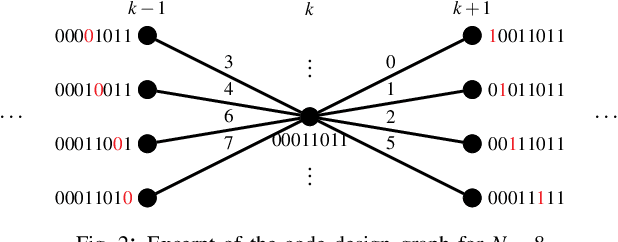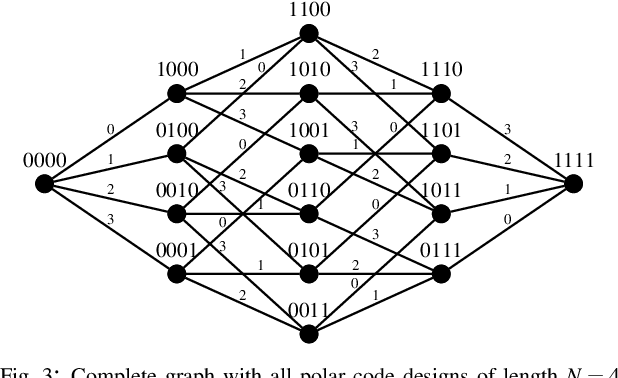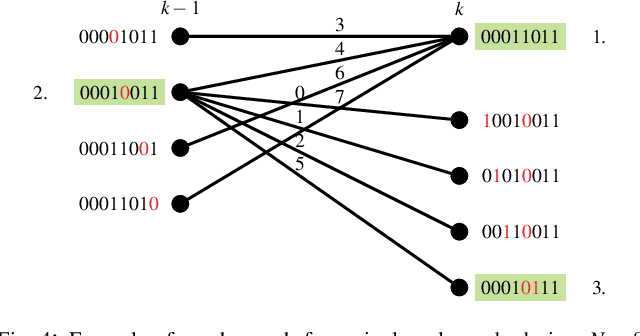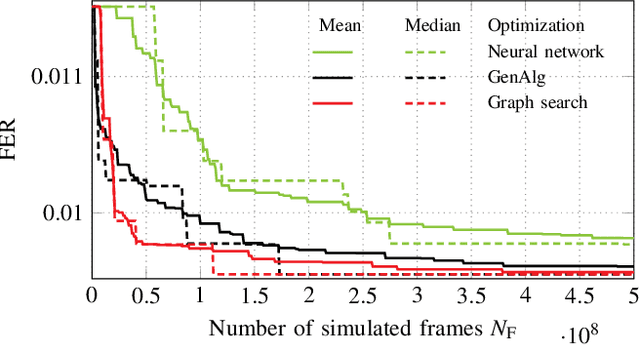Graph Search based Polar Code Design
Paper and Code
Nov 30, 2022



It is well known that to fulfill their full potential, the design of polar codes must be tailored to their intended decoding algorithm. While for successive cancellation (SC) decoding, information theoretically optimal constructions are available, the code design for other decoding algorithms (such as belief propagation (BP) decoding) can only be optimized using extensive Monte Carlo simulations. We propose to view the design process of polar codes as a graph search problem and thereby approaching it more systematically. Based on this formalism, the design-time complexity can be significantly reduced compared to state-of-the-art Genetic Algorithm (GenAlg) and deep learning-based design algorithms. Moreover, sequences of rate-compatible polar codes can be efficiently found. Finally, we analyze both the complexity of the proposed algorithm and the error-rate performance of the constructed codes.
 Add to Chrome
Add to Chrome Add to Firefox
Add to Firefox Add to Edge
Add to Edge